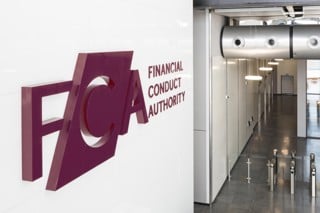Are all the recent newspaper headlines about PCP and motor finance crashing being alarmist?
PCPs have been a big success story. The strength of the market has been sustained over time and that shows you that customers have bought and bought again, and have generally been very happy. It will be interesting post-Brexit, but there’s good room for development. Focusing on penetration is probably the wrong way to look at it nowadays, it’s all about meeting customer needs and how we can continually look at ways to improve the way we do that, and that boils down to the real drive in the industry for transparency.
The more customers can understand the product and what it means for them, the more likely they will buy again, which is critical, and the more likely they will recommend friends to buy from dealers. The fundamental points are customer needs and transparency and real clarity.
What progress can the industry make on that?
One angle is the constant drive for professionalism in the showroom, and that’s a key focus of my role in the Finance and Leasing Association (Smith is chairman of the FLA’s motor finance division) and at Black Horse. The industry has heavily invested in training and finance accreditation under SAF (Specialist Automotive Finance). The vast majority of the 50 largest dealers are SAF-accredited, so we have made a real footprint with that programme. At the moment, we have about 31,000 people taking this test every year.
But it’s getting everybody up to that standard across the industry, so we have a really good baseline. We’ve all seen the recent press, and that shows that our hard-pressed salespeople in showrooms really need to think, with every single customer, that if they were secretly videoing them to put it on YouTube, would they sleep soundly that night? I think it’s a good thing, in driving serious consideration about what people say and do, and it can only further lift standards, which have already jumped in recent years.
What’s your view on the scrutiny motor finance is under?
The motor finance industry has grown to be around a third of the consumer credit market, and of course it will get scrutiny from the regulator and from the press. We should not only expect that, but be prepared to push things beyond where the regulator currently is. That epitomises what I’m trying to accomplish at the FLA. We’ve made some great changes in this industry, but we’ve got to keep moving ahead in collaboration with the regulators and dealer partners, and show that we can continue to be responsible in taking the industry forward.
How will SAF evolve?
Looking at other connected industries like insurance, the regulators tend to like level 3, or A-level equivalent, qualifications. Currently, SAF is not accredited – it’s a very good test, but it is not invigilated. Then there is SAF Advanced, which is much more involved in terms of study and has an invigilated test for a genuine Level 2 qualification (Certificate for Automotive Finance Specialists). We have found that SAF Advanced has had quite a strong take-up from finance companies, but not so much from dealers.
So we are working on modularising the whole process. There will be a SAF start course, moving a Level 2 with the same information currently for the SAF test, and then build in two further modules to take it to a Level 3 qualification. We’re conscious that staff turnover is a challenge for the industry, and if we put in too many onerous, invigilated exams that require long-term study, it just won’t happen. But our absolute aim is Level 3 and that will really lift the standards of professionalism.
How will technology help the motor finance sector?
Digital will also be a real opportunity to get terms and conditions, and difficult regulatory processes, across to customers in a clear way. Currently, there is a lot to go through when they are sitting there waiting to get their shiny new car, so we need to make that really digestible. With digital , they could be sitting in their own home watching personalised videos of information, rather than going through pages and pages.
At Black Horse, we allow the customer to input the data themselves if they choose. Here, technology is going to help massively. This is data that doesn’t necessarily have to be gathered in the showroom every time, it can be done by the customer at a point that suits them.
Where we are going is using APIs (application programming interfaces), which allow our systems to talk to a dealer’s websites and swap data, a bit like how you would pay with Paypal. We see that allowing us to bridge from their websites to our system and it will ultimately allow us to fulfil a finance transaction from start to finish online in conjunction with our dealer.
If a customer is on a dealer website, they can click to come to Black Horse, input their proposal, it will feed into our systems, provide their dealer with the answer, and allow them to pay. Here, the Black Horse brand carries weight – if you are looking at putting your personal financial details in online anywhere, seeing the brand of the biggest bank in the UK alongside what you’re doing gives you a sense of security.
Some onlookers suggest motor retail is behind the curve in providing a full online experience, partly due to the complexity of handling part-exchanges and finance. What’s your view?
The answer is a simple one, but delivering it to the required security standards is complicated and difficult technically. That’s the battle. But once you’re in that space, you can get some real traction.
Obviously, you want to be ground-breaking, but there’s no point being ground-breaking if you’ve not got super-secure, robust systems around it. That’s why we’re taking our time doing it, we’ve got to get it right. This has to make us industry leaders for the next 30 years at point of sale, on top of the 30 years we’ve just had. (Black Horse has a 14% share of the motor finance market, and provides finance through 2,600 dealers operating 6,000 dealerships).
When the FCA first took over regulation of consumer credit, there was a lot of fear in our industry. Will it really be the fire-breathing dragon we all feared?
I I think it’s healthy to have that perception. This is a dragon with teeth, if it needs them. It’s in an exploratory phase at the moment, and it’s important that that point is noted. Some people pick up on a few words from an FCA business statement and assume there’s something there, when it’s obvious the FCA will want to see how the engine works. It’s not long since we were all authorised, and the FCA is moving at quite a pace through this.
The FCA is important in all of this, but a lot of it is basically about doing the right thing. Giving the customers great value, meeting their needs and making sure you are giving great outcomes so they come back and you are building up the number of customers coming through, is the way to do business these days.
Some finance houses have changed their incentives following FCA regulation. What’s your view on that?
Obviously, ladder-based rewards are history. Goals of penetration and market growth are not in the picture, in terms of how we review our dealers now, as it’s all about customer outcomes. Reviews are about ensuring every customer that came in has gone through a good process and that we are not seeing any worrying signs or trends.
What other sectors can dealers learn from?
In terms of affordability, we can certainly learn a lot from the mortgage industry. I think affordability has to be strengthened across the industry. My view is, going back to basic integrity here, when you’re looking to buy a house, you do ask yourself ‘Can I actually afford this? Can I do this for 20 years? What might the future hold? If I miss a payment what happens?’ These really important bits aren’t just tick boxes and protocol on pieces of paper handed to the customer. It’s a moment when the customer really has to think if they can afford it. We have learnt a lot from mortgages and brought it into the Black Horse process, and I would like to drive that even further in the industry.
Might regulation have even helped dealers?
It helped people understand what is required. Systems and processes are an important part of it, but it’s all about customer need. If that’s at the heart, you tend to find everything flows away from that. Dealers have made big strides forward, it really has professionalised how they record what they do with customers.
Is the industry now ripe for more innovation in the finance space?
I I think there will be things naturally emerging and happening, but there needs to be a clear view that these must be very beneficial to a customer and have their needs at the core, to be responsibly lent on, so meet all the regulatory requirements. People will always look at ways to help people afford what they want to afford. We have to make sure those products do the job well, and if there’s room to simplify and do things in an even more straightforward way for customers that can only be positive.






















Login to comment
Comments
No comments have been made yet.